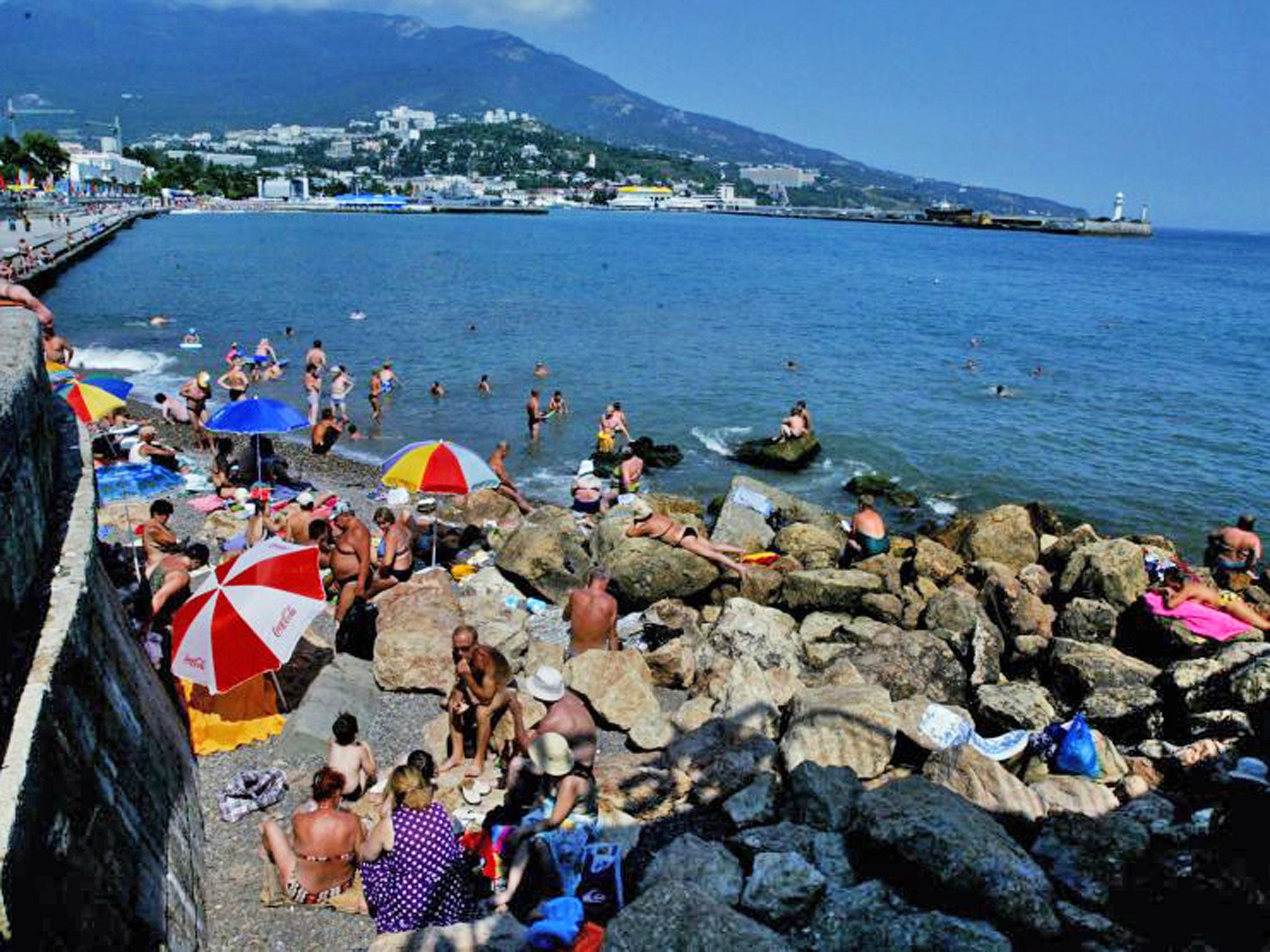Come to Crimea: Could tourism help heal the divisions in Ukraine?
The rise of Ukraine's southern tip as a tourist destination has been put on hold because of the conflict. Simon Calder reports

Twenty-five years ago, not-yet-Sir Richard Branson had a vision for Crimea, the ragged diamond dangling from "mainland" Ukraine. In 1989, an identical shade of red ink stained the map across a great swathe of the world: from Vilnius across to Vladivostok and from Murmansk down to Yalta. In that year, Virgin Atlantic started flying from Gatwick to Tokyo. At the time, the airline's fleet required a refuelling stop en route, which was in Moscow. The airline's founder sensed an opportunity for offering access to the Soviet Union's prime holiday resort; even back in the USSR, tourism was the mainstay of Crimea's economy. Now, it's worth $5bn.
Discussions came to nothing as the USSR started to implode. But once the ugly conflict is settled in Crimea, Sir Richard may look again at the prospect (though for the time being, package tours to the region are reported to be down 90 per cent year on year).
While the foreground of news reports shows the deep animosity between Russian and Ukrainian-speaking residents of Crimea, the backdrop quietly reveals a region rich in interest. Its description as "one of the most wonderful places on Earth" is courtesy of the Ukrainian Ministry of Health Resorts and Tourism. But independent, international endorsement comes from National Geographic – which last year led its list of "20 must-see places" with Crimea.
The southern part of the peninsula is warm, beautiful and rich in heritage. Rolling hills give way to a dramatic mountain ridge that extends around most of the peninsula's southern shore. Crimea is slightly bigger than Wales, but the concentration of interest in the far south covers an area roughly the size of Anglesey. Grand villas, rocky gorges and lush vegetation run along the coast from Alushta south to Yalta – where the historical repertoire commences.
In pictures: Ukraine crisis
Show all 12It was a quiet fishing port for centuries until rich Russians decided to winter here. After the revolution, Lenin decreed that every good Soviet citizen, or at least party apparatchiks, had the right to recuperate by the seaside. The resort is still an odd mix of proletarianism and flamboyance, and its name resounds as the place where post-war Europe was carved up by Churchill and the Allies.
Yalta is twinned with Margate, and – like the far east of Kent – the far south of Ukraine has strong cultural connections. Chekhov came to Yalta as an ailing consumptive at the end of the 19th century. The villa where he lived until his death in 1904 celebrates his life and work; he wrote The Cherry Orchard here, and entertained Gorky and Rachmaninoff.
The dining options have increased 1,000 per cent since the collapse of communism. For the most spectacular plate with a view, aim for the Swallow's Nest at Gaspra, five miles south of Yalta. An Italian restaurant is located in the Germanic castle that perches on a rocky outcrop over the sea, a grand folly.
Evidence of the folly of the Crimean War, which broke out 160 years ago, is easily found. Yet the battlefields beyond Sevastopol are largely untouched. The Great Redoubt at the Alma is still evident, as is the valley of death, where the Light Cavalry charged at Balaclava. At Inkerman, evidence of the slaughter still litters the ground.
Patrick Mercer, the MP and military historian, leads tours to the battlefields: "A bit of rudimentary scuffing around soon reveals shot, shell and shrapnel and, if you persevere, little pots of marmalade, bottles of English ale and even jars of bear grease to protect wind-chapped lips."
History in the morning, hiking in the afternoon and an aperitif by the sea is an alluring combination. In terms of Western holiday horizons, Crimea is virgin territory. And when a political settlement is reached, tourism will prove an essential element in repairing the damage.
Subscribe to Independent Premium to bookmark this article
Want to bookmark your favourite articles and stories to read or reference later? Start your Independent Premium subscription today.

Join our commenting forum
Join thought-provoking conversations, follow other Independent readers and see their replies